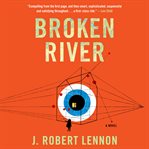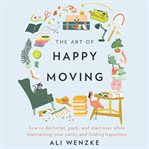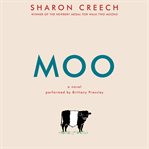Review by New York Times Review
WHY BUDDHISM IS TRUE: The Science and Philosophy of Meditation and Enlightenment, by Robert Wright. (Simon & Schuster, $17.) Can Buddhism's central tenets lead to more enlightened individuals and societies? Wright, the author of "The Moral Animal," draws on evolutionary psychology and neuroscience to make his case, weighing the advantages of mindful meditation and how it can potentially benefit humanity. THE END OF EDDY, by Edouard Louis. Translated by Michael Lucey. (Picador, $16.) This autobiographical novel follows gD0UARD a young gay boy's coming-ofage in working-class France. Growing up in a stagnating factory town, where violence and xenophobia are endemic, Eddy was subjected to torment that was only compounded by his sexuality; ultimately, his attraction to men may have been his salvation. CATTLE KINGDOM: The Hidden History of the Cowboy West, by Christopher Knowlton. (Mariner/Eamon Dolan/Houghton Mifflin Harcourt, $15.99.) Cattle ranching took off in the 1870s, with wealthy Northeast entrepreneurs lured by the promise of the West's rewards. Knowlton picks three novices, including Teddy Roosevelt, to illustrate the industry's boom and bust; for all the eager forecasting, the era of the cowboys lasted less than two decades. THE AWKWARD AGE, by Francesca Segal. (Riverhead, $16.) When a widowed English piano teacher and an American obstetrician fall in love in North London, their blossoming romance faces just one hurdle: their teenage children, who can't stand each other. As the families work to knit together, some prototypically English scenarios arise ("polite, brittle, utterly empty" conversations, for starters), adding humor to the drama. Our reviewer, Hermione Hoby, called this tidy novel a "spry and accomplished comedy of manners." THE SHOW THAT NEVER ENDS: The Rise and Fall of Prog Rock, by David Weigel. (Norton, $17.95.) Weigel delves into the genre's history, including what it inherited from predecessors like the Beach Boys and the Beatles and its resonance today. As John Williams wrote here, the book is "a new history of the genre written by an ardent, straight-faced defender who also understands what is most outlandishly entertaining about it." PERENNIALS, by Mandy Berman. (Random House, $17.) Camp Marigold is the backdrop for this debut novel, where teenagers navigate the perils of female adolescence: puberty, friendship and, above all, sex. At the core is the friendship between Sarah and Fiona, two girls who go on to become counselors, but the book expands to include memories from generations of campers and even Marigold's director.
Copyright (c) The New York Times Company [August 30, 2019]
Review by Booklist Review
Here's a gripping and memorable thriller about a family that moves into a house where, several years earlier, a double homicide took place. Karl, Eleanor, and Irina, the new family, offer an interesting dynamic: Karl is a sculptor whose hobby appears to be philandery, Eleanor is a novelist with a serious case of writer's block, and Irina is an inquisitive young girl who becomes immediately and obsessively curious about the murders. Curious enough that she befriends an older girl, who, she believes, is the daughter of the man and woman who were killed. Oh, and there's a guy named Louis, who sells carpets for a living, except he has another, more violent vocation, too what's his connection to the murders? Lots of mysteries in this tricky story, lots of great characters, and one really cool narrative device: the story is told from the perspective of an observer, a sort of invisible presence without corporeal substance, as the author describes it. A ghost? A being from another plane? On its surface a clever thriller, underneath a dark family drama, this is one haunting novel.--Pitt, David Copyright 2017 Booklist
From Booklist, Copyright (c) American Library Association. Used with permission.
Review by Publisher's Weekly Review
An omniscient, objective narrative viewpoint-the Observer-floats ethereally through Lennon's psychological thriller, highlighting the actions, thoughts, and backstories of the numerous characters and offering hints about their futures. Voice actor Huber employs a semi-hushed, mellow voice for the ghostly figure, who focuses primarily on the protagonist, a novelist named Eleanor and her unsuccessful sculptor husband Karl, who, hoping to mend their marriage, have moved from Brooklyn to Broken River, N.Y., with their 12-year-old daughter, Irina. Soon after the precocious Irina discovers that her new house was the scene of a savage murder 10 years ago, she becomes obsessed with the unsolved crime. The Observer's interest shifts from chapters involving these characters to those in which two of the original perpetrators, the unhappy, guilt-ridden Louis and Joe, a hulking brute who enjoys killing, respond to the new interest in their crime. Huber adds an angry edge to Eleanor's speech and a slow, hipster stoner vibe to Karl's conversation, while Irina is on a continuous youthful emotional roller coaster. The pathetic Louis spends his time either bemoaning his life's mistakes or obeying Joe's grunting monosyllabic demands. When they and their potential victims face off, Huber performs the scene as shocking and suspenseful, no small task from the Observer's more detached perspective. A Graywolf paperback. (May) © Copyright PWxyz, LLC. All rights reserved.
(c) Copyright PWxyz, LLC. All rights reserved
Review by Library Journal Review
This latest from the quirky and widely admired Lennon (Mailman; Castle) opens with chaos: two adults and a child flee an upstate New York farmhouse in panic. The adults are soon brutally murdered, and the child goes missing. Fast-forward a dozen years: the house, itself a character, has deteriorated, occupied only by druggies, horny teens, and a noncorporeal presence known as the Observer. Newly renovated, it becomes the home of Karl, a sculptor fleeing his infidelities in New York City, though not successfully, along with his chick-lit novelist wife, Eleanor; his daughter Irina, a precocious 12-year-old fascinated by the murders; and, of course, the Observer. Events converge: Eleanor and Irina join a website speculating on the killings, while Louis, a carpet salesman and then unwilling accomplice to Eleanor and Irina, calls in the true perpetrator, Joe, the ultimate socio/psychopath. Violence permeates the end of the story; there are multiple murders at a marijuana farm and a final showdown at the house. Who lives, who dies? The Observer knows. VERDICT Vintage Lennon, full of intertwined plots, speculation, complicated and descriptive writing, and even some humor amid the bloodshed.-Robert E. Brown, Oswego, NY © Copyright 2017. Library Journals LLC, a wholly owned subsidiary of Media Source, Inc. No redistribution permitted.
(c) Copyright Library Journals LLC, a wholly owned subsidiary of Media Source, Inc. No redistribution permitted.
Review by Kirkus Book Review
A violent trespass against a young child's family in 2005 comes back to haunt another family in the present day.Lennon (See You in Paradise, 2014, etc.) takes a dark turn with this strange novel that combines domestic drama, violent crime, and a metaphysical entity that largely serves as a narrative device. The book opens in 2005, as a father and a mother are murdered in the woods, their small daughter the lone survivor. A dozen years later, their former home is rented by a dysfunctional family. Karl is a sculptor in decline, being punished for having an affair. His wife, Eleanor, is a cancer survivor and midrange novelist who seethes against her husband's failings. Their 12-year-old daughter, Irina, is bright, precocious, and obsessed with the murder. This is the stuff of more traditional narratives, but soon Lennon feels the need to introduce "The Observer," an ethereal witness that can conveniently look in on any character at any time. This results in passages like, "For now, however, the Observer can feel the gears of cause and effect locking together, increasing in rotational velocity. Previously hidden truths will soon become known to its subjects. Events long gestating in the womb of possibility will soon be dramatically born." Eventually we meet Sam, an adolescent with a mysterious past, and a pair of pugnacious thugs with a leading role in the events to come. The grandiosity of Lennon's paranormal patina doesn't elevate the predictability of the book's domestic drama nor explain its violent end. The book pretty much tells us this: "None of it mattersthe coincidences, the connections. Things look connected because everything is connected in a town like Broken River. That's why people want to leave small towns. Everything reminds them of some stupid shit they did or that was done to them." An eminently readable but melodramatic story that dilutes its suspense with far-fetched metafiction. Copyright Kirkus Reviews, used with permission.
Copyright (c) Kirkus Reviews, used with permission.



